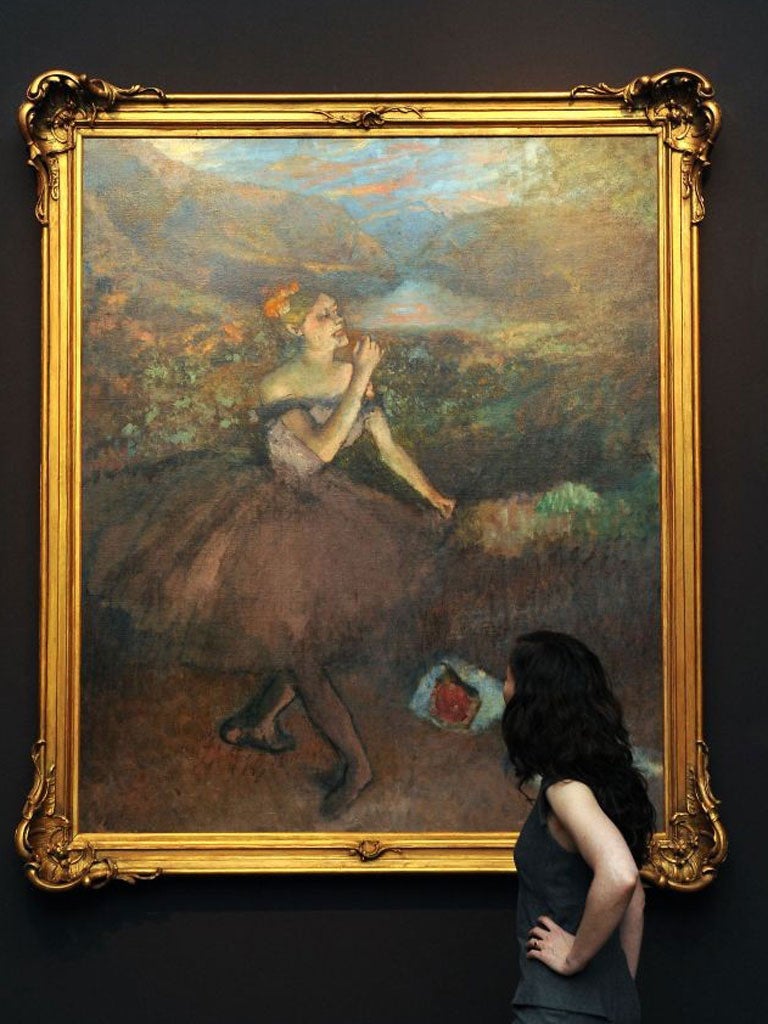Joan Smith: No way for the BBC to treat families
Notebook

When I was a child, men changed jobs and their families moved with them. That's just how it was, even though I had to keep adapting to new schools (I went to six in all) and I'm pretty sure my mother hated it. I did put up a bit of fight when I was 15 and Dad announced we were moving to Basingstoke, but it didn't get me anywhere – other than a windy and half-built council estate in Hampshire.
That was bad enough, but these days – now that women have jobs and parents fight to get their kids into the best state schools, I mean – the whole subject of whose interests come first is fraught with difficulty.
The BBC's decision to move 1,500 employees to a new TV centre in Salford is a case in point; for some time there's been low-level grumbling about why a whole raft of programmes is being moved from London to Greater Manchester. It's easy to dismiss this discontent as typically London-centric, and to mock metropolitan types who simply don't know where they're going to find a decent ciabatta up north. But what about the families of BBC employees: people who don't work for the corporation, who have jobs they love in London or the South of England and don't see why they should be forced to sell their homes?
Employers are supposed to be family-friendly these days – I know, I'm just saying they're supposed to be – and it's hard to square that with the expectation that entire families will meekly uproot themselves and move hundreds of miles.
Now the BBC Breakfast sports presenter Chris Hollins has broken rank. "Going to Salford is a huge upheaval and people are not talking about the effect it is having on their lives," he told the Daily Mail this week. "Perhaps it's not realised that there are more than just the people on the programme who are involved – there are partners and children, too."
According to Hollins, his colleagues don't want to talk publicly but some marriages are breaking down under the strain of what is bound to be, for many, a huge and unwelcome disruption. I'd have thought it's particularly hard on families with young children who have set up a support system in London and now have to start again from scratch, while single people will have to set up new networks of friends.
The BBC's decision to move so many jobs to Salford has received a great deal of attention because the corporation plays such a visible role in our lives, but it highlights a wider and very modern dilemma. Two generations ago, most of those 1,500 employees would have been men and happy to describe themselves as "breadwinners". They'd have expected their wives to go with them, and I doubt whether family members would have made even a squeak of protest.
Now the world's changed and the two-career couple is the norm, but the work environment hasn't caught up. As Hollins says, his fiancée has a good job in London: "Why should she go to Manchester?"
It's another example, I'm afraid, of the rhetoric of the office not matching reality. Of course we should have equal pay for men and women, but we don't. Of course work should be organised so it doesn't damage private life, but it isn't. The financial cost of the BBC's move to Manchester is £877m, but I wonder how much it will cost in damaged relationships?
Trapped inside the Degas chocolate box
What is it about the middle classes and ballet? Last weekend I popped into the Royal Academy of Arts in Piccadilly, where a new show, Degas and the Ballet: Picturing Movement, has recently opened. It was Friday evening and I expected it to be doing a brisk trade, but the place was absolutely packed. The lighting was low, the voices hushed – the whole experience was a bit like being in church – and after a while I couldn't take any more.
Degas painted ballet dancers. He painted them on stage and resting, singly and in groups. Apart from the occasional flash of orange, his colours are soft and pastel. It was like being trapped in a chocolate box, but one where all the interesting centres have been taken out. He may have been louche, but give me Toulouse-Lautrec's vibrant posters of dancers any day.
Grains of truth that keep me awake at night
Drinking coffee reduces your risk of depression, according to new research, but only if you happen to be female. For once in my life I'm ahead of the game, having noticed a gradual increase in the number of espressos I consume since I finally acquired a coffee machine that works. When I moved house a few years ago, I discovered a sad collection of rejects, none of which had ever produced coffee up to my exacting standards.
Now I can drink perfect coffee at home at any time and I live within walking distance of two branches of Caffè Nero. The temptation is irresistible and I'm now up to four cups a day, which apparently cuts my chances of feeling blue by 20 per cent. I've yet to work out how to deal with the (disastrous) effect on my sleeping pattern, but I can see why the first people to drink coffee in Italy treated it with the respect due to a very potent drug.
Join our commenting forum
Join thought-provoking conversations, follow other Independent readers and see their replies
Comments
Bookmark popover
Removed from bookmarks